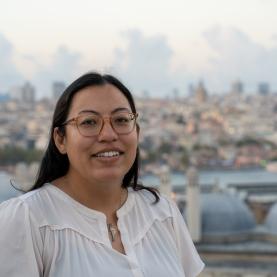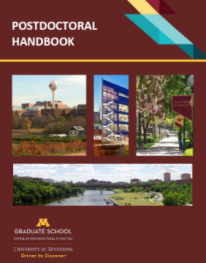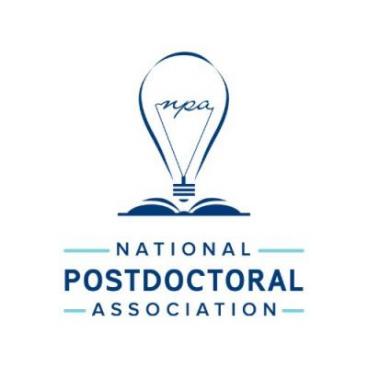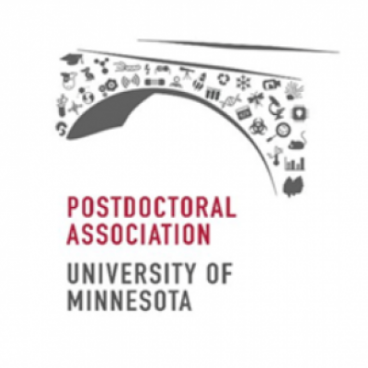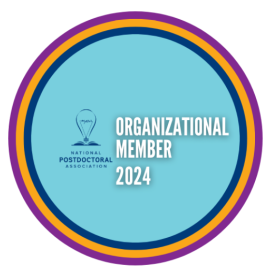Welcome!
Mission
The mission of the Office of Postdoctoral Initiatives (OPI) is to change the climate and culture surrounding postdoctoral education via policy change and advocacy.
- Build community and give greater visibility to postdoctoral scholars;
- Encourage excellence in postdoctoral mentoring, advising, and professional development;
- Prepare the next generation of scholars to be leaders and change agents in their respective fields.
Postdoc Handbook
The Postdoctoral Handbook offers new and returning postdocs a guide to resources and information from across the University and broader community.
PostdocSERU Survey
PostdocSERU is the first comprehensive survey of the postdoctoral experience of its kind at the University of Minnesota. The survey includes questions related to the postdoc experience in several key areas: research training, teaching, manuscript and grant-writing, mentoring and advising, professional and career development opportunities, as well as health and well-being. View results from the 2021 PostdocSERU Survey.
Contact Us
Office of Postdoctoral Initiatives | opi@umn.edu
Mariam Banahi
Assistant Director for Postdoctoral Initiatives
Twin Cities Campus | Johnston Hall 306
banah004@umn.edu
Community Building
National Postdoctoral Appreciation Week (NPAW)
The Office of Postdoctoral Initiatives (OPI) joins institutions and research centers across the country to celebrate postdocs and the contributions they make each and every day through National Postdoctoral Appreciation Week, a National Postdoctoral Association-sponsored initiative that takes place annually over the third week of September.
The Post
The Post is a monthly e-newsletter catered to UMN’s postdoctoral community. It includes career and professional development resources, information on internal and external funding opportunities, service opportunities, as well as the latest from OPI and the Postdoctoral Association.
All UMN Postdocs are automatically subscribed to The Post, but Faculty and Staff who work closely with Postdocs are encouraged to subscribe using the form available on the OPI homepage.
To submit content to The Post please email opi@grad.umn.edu.
Policy Initiatives and Advocacy to Improve Climate Surrounding Postdoctoral Education
OPI works on policy initiatives and advocacy in support of postdocs, e.g, equity in health benefits, time for professional development, etc.
Monitoring and Evaluation of Climate Surrounding Postdoctoral Education
Every three years, OPI administers a survey to assess the experiences of postdocs and monitor the climate of postdoctoral training.
Building Community through Collaboration
Postdoctoral Association
OPI collaborates with the UMN Postdoctoral Association (PDA), a postdoc-led organization that exists to improve the quality of the postdoctoral experience and to facilitate the long-term success of University postdocs.
Members meet regularly to discuss issues relevant to the postdoc community and organize community-building events.
Join the PDA’s email listserv to get updates on events, opportunities, and changes in postdoc policies
The PDA also has a Slack channel to help you connect with other UMN postdocs (this requires a umn.edu account)
Professional Development
Travel grants for Summer Trainings
The Office of Postdoctoral Initiatives offers three travel grants for postdocs to enhance their professional development and leadership skills, e.g., advanced training in new methods. Applications are available in the fall.
Write Now
Our office hosts a series of writing events throughout the year that provide postdocs and PhD students with the opportunity to write together in a comfortable, quiet space with light refreshments. Participants set writing goals, and at the event’s conclusion, we debrief in a supportive, affirming environment.
Professional Development Workshops
OPI co-hosts and promotes workshops and trainings sponsored by the Graduate School and other campus groups. A schedule for Fall 2024 will be announced in August.
New Faculty Program
The Office of Postdoctoral Initiatives promotes workshops and trainings listed in the The New Faculty Program (NFP) at the University.
Advising & Mentoring
Excellence in Advising Award
Advising is a critical area of focus for the University and a key ingredient for a successful postdoc experience. Each year, the Office of Postdoctoral Initiatives recognizes two outstanding faculty members who demonstrate excellence in their advising of Postdoctoral Fellows and Associates with the Faculty Award for Excellence in Postdoctoral Advising.
Establishing a Successful Advisor-Advisee Relationship
We advocate and encourage best practices in advising among faculty and postdocs.
Individual Development Plan
We also encourage all postdocs to develop an Individual Development Plan (IDP). A well-crafted IDP serves as both a planning tool to identify research and career goals, and a structure for communicating them to mentors, advisors, and future employers.
Pedagogy
The New Faculty Program (NFP)
The New Faculty Program (NFP) offers multiple opportunities for tenure-track, contract faculty, and postdocs to jump start their careers at the U. The program helps faculty build their capacities in research, teaching, community engagement, career advancement, and leadership. Postdocs who complete 8 credits from offered workshops will receive a letter of recognition from Vice Provost for Faculty and Academic Affairs Rebecca Ropers.
Center for Educational Innovation
The Center for Educational Innovation (CEI) provides research-informed, transformative, and inclusive leadership in teaching and learning across the University of Minnesota system.
Pedagogical Innovations Journal Club
Pedagogical Innovations Journal Club was created to help busy instructors from across disciplines keep up with some of the latest innovations, ideas, and research published in pedagogical journals. Each month’s discussion focuses on a recently-published, teaching- or learning-related article. The open forum provides opportunities for participants to discuss the practical implications of the research findings with other. Each session begins with a brief synopsis of that month’s featured reading. You do not have to read the article to benefit from participation.
Funding Opportunities & Resources
UMN Funding Opportunities
The Research and Innovation Office (RIO) provides approximately $5 million in funding and awards annually to support and nurture the University’s systemwide research enterprise.
The UMN Washington Update is a weekly digest of congressional updates and funding opportunities prepared by Lewis-Burke Associates.
The Limited Extramural Funding list features opportunities that require university coordination. For more information or to list a new opportunity, contact facgrant@umn.edu.
Private Foundation Funding
The Corporate and Foundation Relations Private Foundation RFP list includes a wide range of funding opportunities that are currently available from private funders and foundations.
Featured Funding Opportunities
Featured Funding Opportunities for Postdocs.
Charitable Grants Resource Hub
Charitable Grants Resource Hub helps U faculty and staff secure philanthropic funding.
Grant Forward
Grant Forward is a funding opportunity database and recommendation service built by academics for researchers.
Foundation Directory Online (FDO)
FDO offers profiles and recently awarded grants from over 80,000 foundations.
Pivot
Pivot is a funding search tool that pulls information from nonprofit, for profit, federal, private, national, international and other funders. UMN postdocs are able to use Pivot as a way to conduct targeted, customizable searches for the most relevant funding.
Strategic Partnerships and Research Collaborative (SPARC)
SPARC engages researchers across disciplines in the US and globally to establish new large-scale programs. Supported by OVPR and GPS Alliance.
SPIN
SPIN contains over 40,000 funding opportunities from 10,000 federal, public, non-profit and private funders. Please note that to access SPIN off-campus, you will need to set up an account.
University Libraries
The Libraries help researchers connect to funding and grants through curated resources.
Technology & Commercialization
The Industry Funding and Partnership Opportunities list is compiled by Technology Commercialization staff. For more information, contact Leza Besemann at besem007@umn.edu.
Corporate Engagement Center
UMN's Corporate Engagement Center has developed a comprehensive guide for researchers interested in working with industry to advance their ideas and explore partnership opportunities in areas that align with their expertise. Building Successful Industry Partnerships covers a range of topics, including types of industry partnerships, funding opportunities, industry expectations, and intellectual property considerations. It also outlines the key documents and agreements often required for industry partnerships, including confidentiality agreements (NDAs). For more information contact ResearchCorpEng@umn.edu.
Health & Wellness Resources
Health and wellness are critical to achieving the kind of balance that leads to strong, creative work and healthy boundaries around work/life balance. The University makes available to postdocs the services and resources they need to attend to a holistic range of health and wellness needs.
Boynton Health
Boynton Health offers a comprehensive range of clinics available to postdocs with participating health plans. With locations on the East Bank and St. Paul campuses, Boynton is a convenient option that can meet many of your health needs (though postdocs may of course opt to receive health services off campus). Boynton offers the following services through its clinics: primary care, women’s health, sexual health, STI testing, dental clinic, eye clinic, HIV testing/counseling, immunizations, physical therapy, nutritional support, transgender health, pharmacy, travel, and tobacco cessation coaching.
Boynton Mental Health Clinic
Boynton Mental Health Clinic, with locations on both the East Bank and St. Paul campuses, offers supportive services to postdocs. These include individual psychotherapy, couples therapy, group therapy, crisis consultation, medication assessment and management, social work help, eating disorder services, alcohol and chemical health services, and ADD/ADHD treatment. Please be sure to check with your provider about insurance coverage when making an appointment.
University Recreation and Wellness
University Recreation and Wellness serves the greater University community by enriching the campus experience and encouraging lifelong wellbeing. URW is driven to developing leaders, fostering supportive relationships, and inspiring active living through recreation and wellness. It models a welcoming and supportive environment by promoting a culture of inclusion, respect, and wellbeing through education and shared experiences. This office runs the various campus gyms (RecWell Center, Cooke Hall, St. Paul Campus Gym, Pool, Field House, Climbing Wall, etc.) available to postdocs for a fee, and it also hosts several fitness classes and organized health and wellness events.
The Earl E. Bakken Center for Spirituality and Healing
The Earl E. Bakken Center for Spirituality and Healing enriches health and wellbeing by providing exemplary interprofessional education, conducting rigorous research, delivering innovative engagement programs, and advancing innovative models of care. The Center’s mission is to advance the health and wellbeing of individuals, organizations, and communities through integrative health and healing. Postdocs can take advantage of the many free workshops, retreats, and seminars the Center offers.
Mental Health Collective of Black, Indigenous People and People of Color (BIPOC)
The Diversity Liaison Counselor and other BIPOC staff and trainees partner with the Mental Health Collective of BIPOC. This is a cross-campus collaboration formed to create a radical healing space to foster conversations around the topic of Mental Health and Wellbeing in BIPOC communities. The Mental Health Collective acknowledges that many of the current resources/services at the University of Minnesota fall within a traditional White, western mental health framework, and it strives to disrupt that model. The Collective is open to students, faculty, and staff who self-identify as Black, Indigenous and/or Peoples-of-color at the University.
Employee Assistance Program
The University’s Employee Assistance Program (EAP) provides confidential professional consultation and referral services to address any personal or work concern that may be affecting your wellbeing. You can receive up to eight sessions per issue at no cost. EAP is here to support postdocs on a range of work or personal concerns, including: personal, interpersonal, and work relationships; conflict resolution; adjustment to grief/loss or change; coping with stress; mental and chemical health issues.
External Resources
National Postdoctoral Association
As the national voice of the postdoctoral community, the National Postdoctoral Association (NPA) is the one national entity representing both postdocs and their institutions. Promoting a culture of inclusion through advocacy, professional development, and a tireless dedication to diversity, equity and inclusion.
UMN’s Organizational Membership with the NPA includes free affiliate membership for postdocs and graduate students when you register with your institutional email address as the primary or alternate address to receive your membership.
NPA Career Center
The NPA Career Center is your one-stop career resource center to prepare you for your next opportunity.
Postdoc Academy
The Postdoc Academy is a comprehensive online and in-person program built on the National Postdoctoral Association core competencies to support skill development throughout postdoc training, from orientation to next career step.
NPA SmartSkills
NPA SmartSkills are free, virtual courses for postdocs who are members of the NPA. Monthly classes are taught by experts and focus on building skills critical to career and personal success. Postdocs that attend 10 out of 12 sessions live will receive a certificate of completion.
